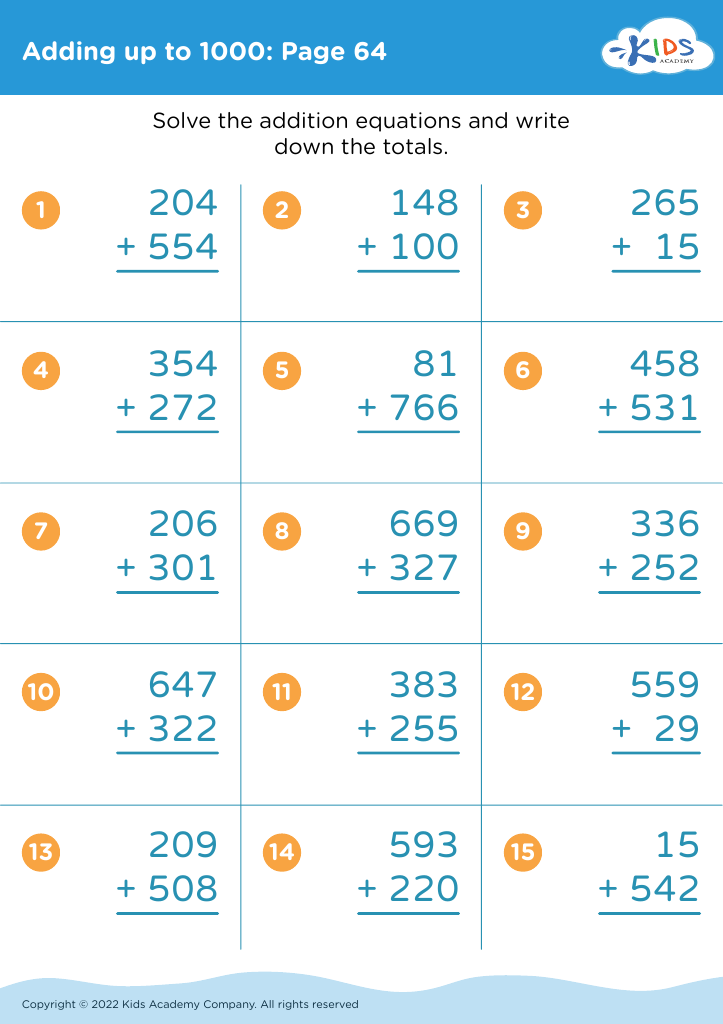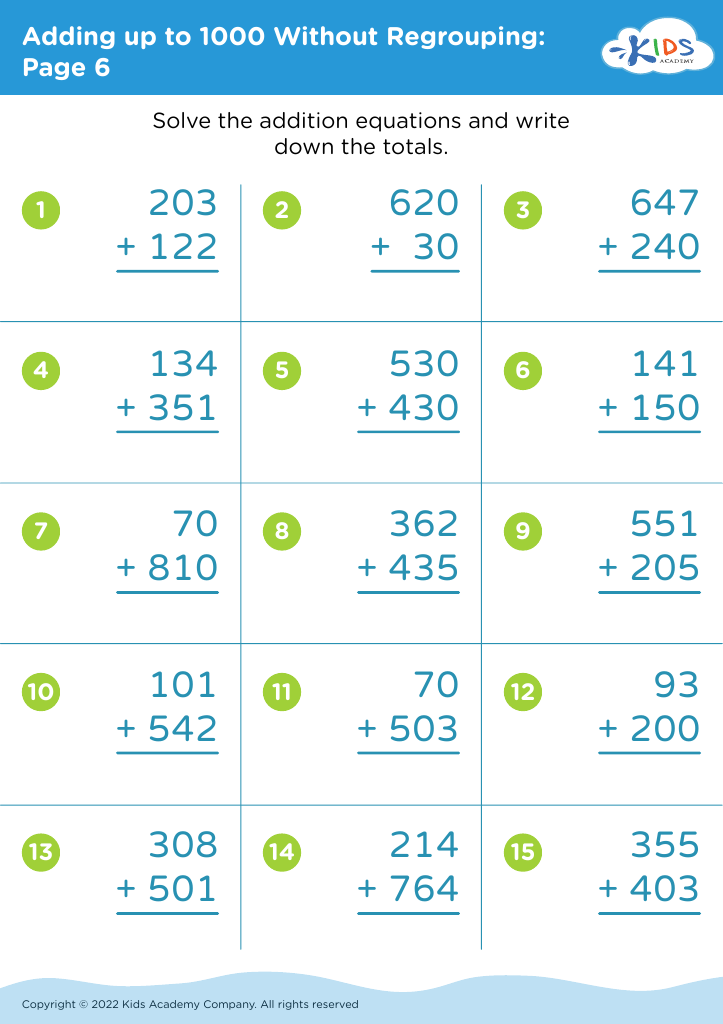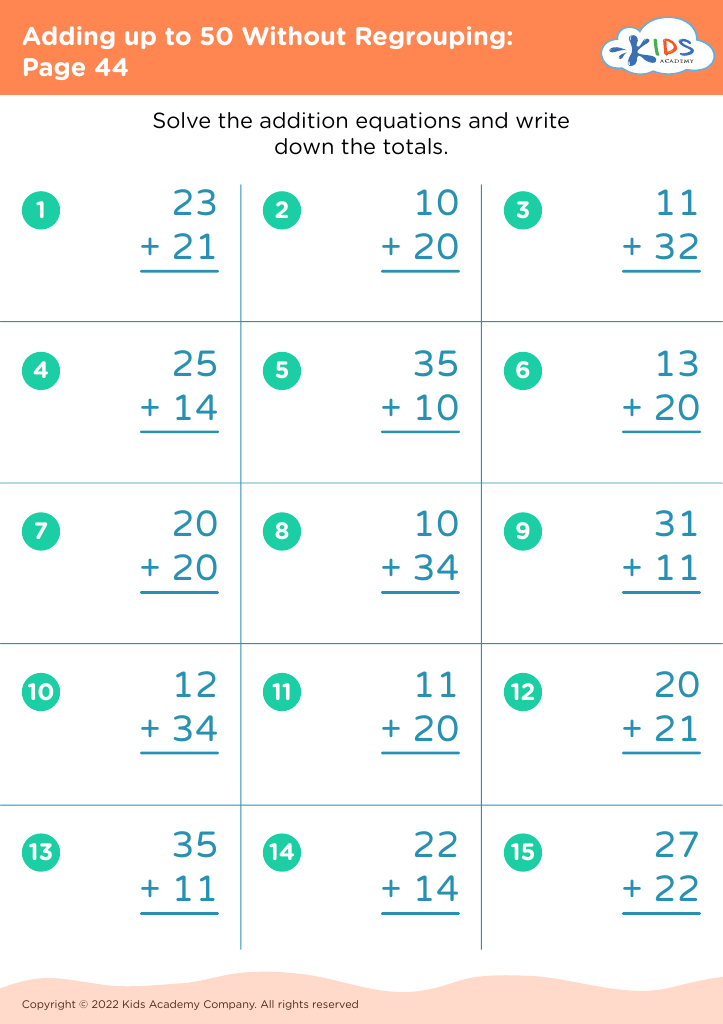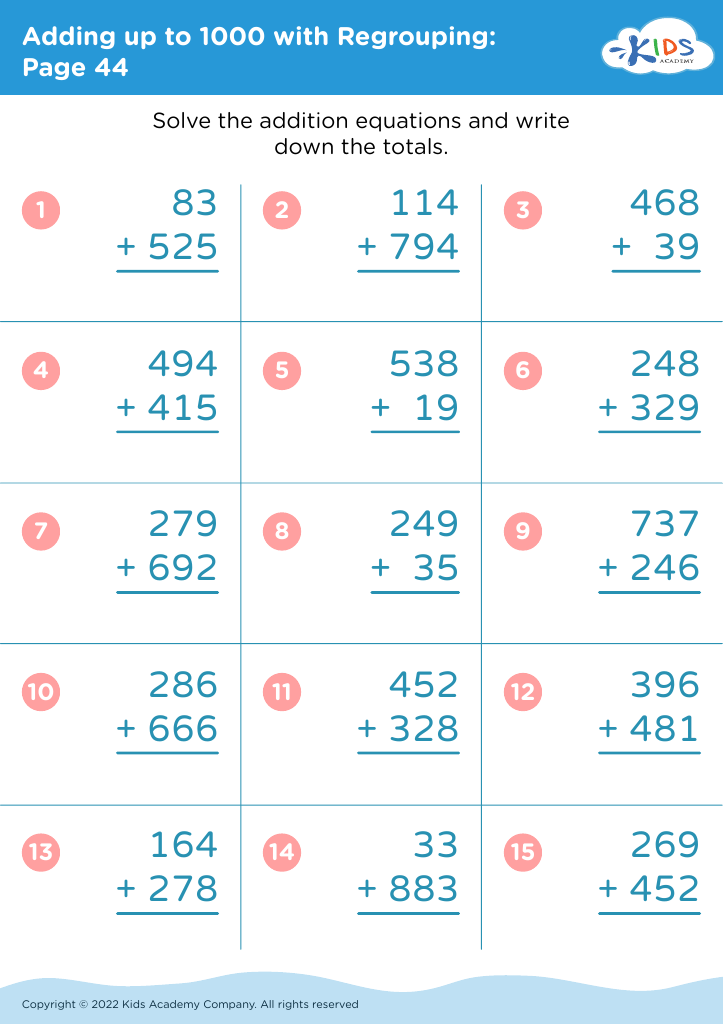Understanding sequencing Addition & Subtraction Worksheets for Ages 3-9
7 filtered results
-
From - To
Unlock the foundation of mathematical skills with our "Understanding Sequencing Addition & Subtraction Worksheets" designed for ages 3-9. These engaging worksheets help young learners grasp the essential concepts of sequencing through interactive and fun activities. By mastering addition and subtraction in a structured manner, children will develop crucial problem-solving skills and build confidence in their math abilities. Our comprehensive resources cater to diverse learning styles, ensuring that every child can thrive. Plus, with vibrant visuals and age-appropriate challenges, these worksheets keep kids motivated and excited about learning. Explore the world of numbers and watch your child's skills blossom!
Understanding sequencing in addition and subtraction is crucial for children aged 3-9 as it lays the groundwork for their mathematical skills and overall cognitive development. When children grasp the sequence of operations, they learn to solve problems more effectively, which boosts their confidence in handling mathematical tasks.
For parents and teachers, recognizing the importance of this skill helps them to create targeted learning experiences. Children who can sequence numbers and operations are more likely to excel in advanced math concepts, which often rely on these foundational skills, such as algebra and beyond. Moreover, sequencing aids in the development of critical thinking and logical reasoning, essential skills in both academic and daily life.
By fostering an understanding of sequencing in addition and subtraction, adults can help children make meaningful connections between numbers, improve their ability to follow step-by-step instructions, and enhance their problem-solving skills. This understanding aids in developing literacy as well; for instance, just as sentences have a beginning, middle, and end, so do mathematical processes. All of this contributes to a child's overall academic success and prepares them for a future where mathematical understanding is increasingly important. Thus, emphasizing sequencing is fundamental for educational growth in early childhood.



























